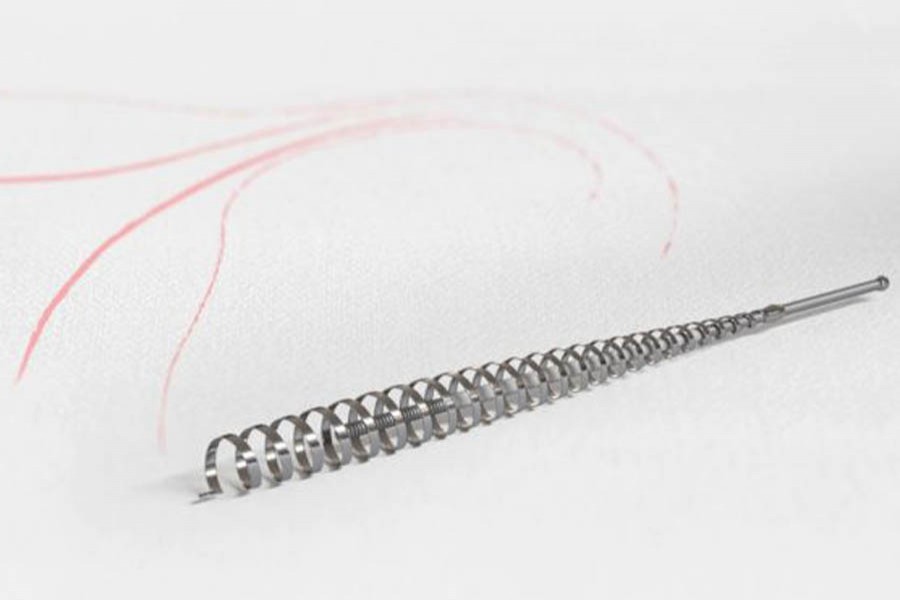Women in Australia will pursue a class action lawsuit over a sterilisation device that has allegedly caused medical problems for women worldwide.
The lawsuit against German pharmaceutical giant Bayer, maker of the Essure implant, will follow similar actions in the UK, US and Canada.
Women with the implant have reported problems such as chronic pain and adverse reactions to nickel.
Bayer has defended the Essure device as safe.
The product was withdrawn from sale in the US in July. Bayer had already halted sales in all other nations, citing commercial reasons.
"We continue to stand behind the product's safety and efficacy, which are demonstrated by an extensive body of research," the company said in July.
Australian firm Slater and Gordon said the lawsuit would examine whether the device, sold in the country from 2010, was "inherently defective".
Complications 'damaging'
The small coil implants, which are made of nickel and polyester (PET) fibres, were used as a sterilisation device to stop eggs reaching the womb.
They were inserted into the fallopian tubes and designed to trigger inflammation, causing scar tissue to build up and eventually block the tubes, known as a hysteroscopic sterilisation.
"For the women who have experienced complications it has been incredibly damaging," Slater and Gordon lawyer Ebony Birchall said.
She said many women had been forced to have a hysterectomy to remove the coil.
One Australian plaintiff, Tanya Davidson, said she had endured pain and side effects including memory loss for eight years.
"Every day I wake to the feeling of brain fog and have trouble remembering simple things like the names of everyday objects," she said in a statement on Monday.
Other complications allegedly resulting from the device's breakdown include irregular menstrual bleeding, pelvic inflammation, pain during intercourse, reduced libido and muscle pain.
Slater and Gordon said it has been contacted by dozens of Australian women about the device. The firm is expecting hundreds more to join the lawsuit, reports BBC.
More than 750,000 Essure devices have been sold worldwide, according to Bayer.


